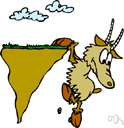mar·gin
(mär′jĭn)n.
1. An edge and the area immediately adjacent to it; a border. See Synonyms at border.
2. The blank space bordering the written or printed area on a page.
3. A limit in a condition or process, beyond or below which something is no longer possible or acceptable: the margin of reality; has crossed the margin of civilized behavior.
4. An amount allowed beyond what is needed: a small margin of safety. See Synonyms at room.
5. A measure, quantity, or degree of difference: a margin of 500 votes.
6. Economics
a. The minimum return that an enterprise may earn and still pay for itself.
b. The difference between the cost and the selling price of securities or commodities.
c. The difference between the market value of collateral and the face value of a loan.
7. An amount in money, or represented by securities, deposited by a customer with a broker as a provision against loss on transactions made on account.
8. Botany The border of a leaf.
tr.v. mar·gined, mar·gin·ing, mar·gins
1. To provide with a margin.
2. To be a margin to; border.
3. To inscribe or enter in the margin of a page.
4. Economics
a. To add margin to: margin up a brokerage account.
b. To deposit margin for: margin a transaction.
c. To buy or hold (securities) by depositing or adding to a margin.
mar′gined adj.
American Heritage® Dictionary of the English Language, Fifth Edition. Copyright © 2016 by Houghton Mifflin Harcourt Publishing Company. Published by Houghton Mifflin Harcourt Publishing Company. All rights reserved.
margin
(ˈmɑːdʒɪn) or archaicmargent
n
1. an edge or rim, and the area immediately adjacent to it; border
2. (Printing, Lithography & Bookbinding) the blank space surrounding the text on a page
3. (Printing, Lithography & Bookbinding) a vertical line on a page, esp one on the left-hand side, delineating this space
4. an additional amount or one beyond the minimum necessary: a margin of error.
5. (Industrial Relations & HR Terms) chiefly Austral a payment made in addition to a basic wage, esp for special skill or responsibility
6. a bound or limit
7. the amount by which one thing differs from another: a large margin separated the parties.
8. (Commerce) commerce the profit on a transaction
9. (Economics) economics the minimum return below which an enterprise becomes unprofitable
10. (Banking & Finance) finance
a. collateral deposited by a client with a broker as security
b. the excess of the value of a loan's collateral over the value of the loan
vb (tr)
11. to provide with a margin; border
12. (Banking & Finance) finance to deposit a margin upon
[C14: from Latin margō border; related to march2, mark1]
Collins English Dictionary – Complete and Unabridged, 12th Edition 2014 © HarperCollins Publishers 1991, 1994, 1998, 2000, 2003, 2006, 2007, 2009, 2011, 2014
mar•gin
(ˈmɑr dʒɪn)n.
1. the space around the printed or written matter on a page.
2. a border; edge.
3. an amount allowed or available beyond what is necessary: margin for error.
4. a limit beyond or below which something ceases to exist or to be desirable or possible: the margin of endurance.
5. an amount or degree of difference: to win by a margin of three votes.
6.
a. security, usu. a percentage of a transaction, that a client deposits with a broker as a provision against loss.
b. the amount representing the client's investment or equity in such an account.
7. the difference between the amount of a loan and the market value of the collateral pledged as security for it.
8. the difference between the cost of merchandise and the net sales.
9. the point at which the return from economic activity barely covers the cost of production and below which production is unprofitable.
v.t. 10. to provide with a margin or border.
11. to enter in the margin, as of a book.
12.
a. to deposit a margin upon: to margin an account.
b. to purchase (securities) on margin.
[1350–1400; Middle English < Latin margin- (s. of margō) border]
Random House Kernerman Webster's College Dictionary, © 2010 K Dictionaries Ltd. Copyright 2005, 1997, 1991 by Random House, Inc. All rights reserved.
margin
In cartography, the area of a map or chart lying outside the border.
Dictionary of Military and Associated Terms. US Department of Defense 2005.
margin
Past participle: margined
Gerund: margining
| Imperative |
|---|
| margin |
| margin |
Collins English Verb Tables © HarperCollins Publishers 2011
ThesaurusAntonymsRelated WordsSynonymsLegend:
| Noun | 1. |  margin - the boundary line or the area immediately inside the boundary margin - the boundary line or the area immediately inside the boundarylip - either the outer margin or the inner margin of the aperture of a gastropod's shell |
| 2. | margin - an amount beyond the minimum necessary; "the margin of victory" amount - the relative magnitude of something with reference to a criterion; "an adequate amount of food for four people" margin of error, margin of safety, safety margin - the margin required in order to insure safety; "in engineering the margin of safety is the strength of the material minus the anticipated stress" narrow margin, slimness, narrowness - a small margin; "the president was not humbled by his narrow margin of victory"; "the landslide he had in the electoral college obscured the narrowness of a victory based on just 43% of the popular vote" | |
| 3. |  margin - the amount of collateral a customer deposits with a broker when borrowing from the broker to buy securities margin - the amount of collateral a customer deposits with a broker when borrowing from the broker to buy securitiesdown payment, deposit - a partial payment made at the time of purchase; the balance to be paid later | |
| 4. | margin - (finance) the net sales minus the cost of goods and services sold corporate finance - the financial activities of corporation net income, net profit, profit, profits, earnings, lucre, net - the excess of revenues over outlays in a given period of time (including depreciation and other non-cash expenses) | |
| 5. |  margin - the blank space that surrounds the text on a page; "he jotted a note in the margin" margin - the blank space that surrounds the text on a page; "he jotted a note in the margin"page - one side of one leaf (of a book or magazine or newspaper or letter etc.) or the written or pictorial matter it contains | |
| 6. | margin - a permissible difference; allowing some freedom to move within limits discrepancy, disagreement, divergence, variance - a difference between conflicting facts or claims or opinions; "a growing divergence of opinion" |
Based on WordNet 3.0, Farlex clipart collection. © 2003-2012 Princeton University, Farlex Inc.
margin
noun
1. gap, amount, difference, majority They could end up with a 50-point winning margin.
Collins Thesaurus of the English Language – Complete and Unabridged 2nd Edition. 2002 © HarperCollins Publishers 1995, 2002
margin
noun1. A fairly narrow line or space forming a boundary:
Chiefly Military: perimeter.
The American Heritage® Roget's Thesaurus. Copyright © 2013, 2014 by Houghton Mifflin Harcourt Publishing Company. Published by Houghton Mifflin Harcourt Publishing Company. All rights reserved.
Translations
حافَّهمَجال، هامِش، مَساحَههَامِشٌهامِش
okrajrezervakraj
margenmarginudkant
reuna
višak
hibahatármargó
brún, jaîarskekkjumörk, frávikspássía
へり
가장자리
nežymusparaštė
lappuses malamalarezerverobeža
rob
marginal
ขอบ
sự chênh lệch
margin
[ˈmɑːdʒɪn] N2. (fig) → margen m
margin of error → margen m de error
margin of safety → margen m de seguridad
to win by a wide/narrow margin → vencer por un amplio/estrecho margen
they live on the margin(s) of society → viven al margen or marginados de la sociedad
margin of error → margen m de error
margin of safety → margen m de seguridad
to win by a wide/narrow margin → vencer por un amplio/estrecho margen
they live on the margin(s) of society → viven al margen or marginados de la sociedad
3. (Comm) (also profit margin, margin of profit) → margen m de beneficios
Collins Spanish Dictionary - Complete and Unabridged 8th Edition 2005 © William Collins Sons & Co. Ltd. 1971, 1988 © HarperCollins Publishers 1992, 1993, 1996, 1997, 2000, 2003, 2005
margin
[ˈmɑːrdʒɪn] n (between totals, scores) → marge f
by a small margin [lose, fail] → de peu
to win by a small margin → gagner par une faible marge, gagner avec un faible écart
They won by the small margin of five seats → Ils gagnèrent par une faible marge de cinq sièges., Ils gagnèrent avec un faible écart de cinq sièges.
to vote by a narrow margin to do sth → voter pour faire qch par une faible marge
by a small margin [lose, fail] → de peu
to win by a small margin → gagner par une faible marge, gagner avec un faible écart
They won by the small margin of five seats → Ils gagnèrent par une faible marge de cinq sièges., Ils gagnèrent avec un faible écart de cinq sièges.
to vote by a narrow margin to do sth → voter pour faire qch par une faible marge
Collins English/French Electronic Resource. © HarperCollins Publishers 2005
margin
n
(= extra amount) → Spielraum m; margin of error → Fehlerspielraum m; to allow for a margin of error → etwaige Fehler mit einkalkulieren; he left a safety margin of one hour → sicherheitshalber kalkulierte er einen Spielraum von einer Stunde ein; by a narrow margin → knapp; it’s within the safety margin → das ist noch sicher
(Comm: also profit margin) → Gewinnspanne f, → Verdienstspanne f
margin
:margin release
n → Randlöser m
margin stop
n → Randsteller m
Collins German Dictionary – Complete and Unabridged 7th Edition 2005. © William Collins Sons & Co. Ltd. 1980 © HarperCollins Publishers 1991, 1997, 1999, 2004, 2005, 2007
margin
[ˈmɑːdʒɪn] n (gen) (fig) → margine mto win by a wide/narrow margin → vincere con largo margine/di stretta misura
Collins Italian Dictionary 1st Edition © HarperCollins Publishers 1995
margin
(ˈmaːdʒin) noun1. the blank edge round a page of writing or print. Please write your comments in the margin.
2. an edge or border. the margin of the lake.
3. something extra, beyond what should be needed. Leave a wide margin for error!
ˈmarginal adjective small and almost non-existent or unimportant. a marginal improvement.
Kernerman English Multilingual Dictionary © 2006-2013 K Dictionaries Ltd.
margin
→ هَامِشٌ okraj margen Rand περιθώριο margen reuna marge višak margine へり 가장자리 marge kant margines margem перевес (фин. маржа) marginal ขอบ sınır sự chênh lệch 差数Multilingual Translator © HarperCollins Publishers 2009
mar·gin
n. margen, borde.
English-Spanish Medical Dictionary © Farlex 2012
margin
n margen mEnglish-Spanish/Spanish-English Medical Dictionary Copyright © 2006 by The McGraw-Hill Companies, Inc. All rights reserved.